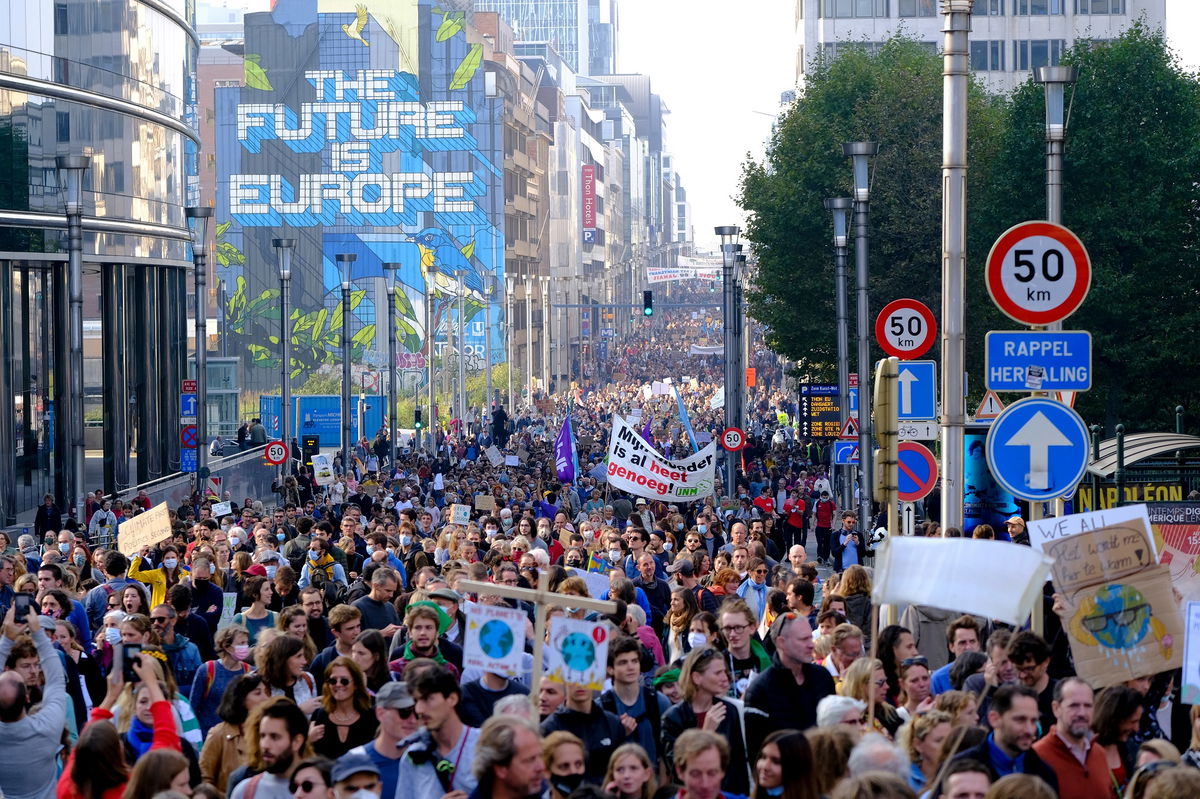By Olivier Acuña Barba •
Published: 04 Jul 2025 • 23:43
• 3 minutes read
Belgium officials are concerned that climate change activists are turning to radicalism | Credit: Shutterstock
Belgium’s national security watchdog has issued a grave warning: the country’s climate activism landscape is undergoing a dangerous transformation. The Federal Threat Analysis Agency, OCAD, is no longer speaking in cautious tones. In a confidential report viewed by Het Laatste Nieuws and Belga, the agency spells it out—what once passed as civil disobedience is now flirting with extremism.
“The methods of action of certain groups have become harsher; some can hardly be labelled ‘activist’, but deserve the label ‘extremist’,” reads the internal assessment. It is a direct and forceful departure from past evaluations, one that reflects mounting concern inside Belgium’s intelligence corridors over an increasingly radical undercurrent within climate movements.
This is no longer just about chaining oneself to a tree or blocking traffic with banners. We are now talking about sabotage operations capable of triggering deadly explosions.
Most Read on Euro Weekly News
Events that changed everything
At the centre of OCAD’s investigation lies the high-profile action on 1 March in the Port of Ghent. Organised by Code Rood—a civil disobedience coalition increasingly seen as a radicalising force—the protest targeted installations operated by Cargill, a global agribusiness juggernaut. Among the hundreds of demonstrators was Swedish icon Greta Thunberg, whose presence drew international media but also added a layer of political heat.
According to OCAD’s findings, demonstrators didn’t just wave signs or sit in. They disrupted operational systems by pressing emergency stop buttons and slicing through data cables. The result? A dangerous accumulation of gases in certain facilities—enough to trigger “an acute explosion hazard,” the report states. That chilling phrase now hangs like a shadow over Belgium’s climate activism narrative.
The situation at the neighbouring steelmaker ArcelorMittal was no better. Protesters scaled the company’s blast furnace gas pipelines and disabled key safety circuits. The system was forced into shutdown to avert catastrophe—another incident that “could have had fatal consequences,” OCAD warns. The agency is careful to acknowledge that the protesters “almost certainly did not intend to endanger people.” Still, that’s not much comfort. The fact remains, OCAD concludes, that this is a “worrying development” with real and increasing risk.
A movement at a crossroads
Code Rood began as a grassroots initiative rooted in civil resistance. Their early campaigns, like the 2022 blockade of the Port of Antwerp and the sit-ins near TotalEnergies in Feluy and Wandre, fell within the traditional parameters of peaceful protest. But over the past year, something has shifted.
“An evolution towards more radical methods is becoming apparent,” the report says. OCAD’s analysts detect a growing internal drift, with hardline elements marginalising more moderate voices. Within the movement’s umbrella structure, the weight of what the agency calls “extremist actors” has increased. And they are not just shouting louder—they’re driving the bus.
The fingerprints of Belgium‘s radical left are also becoming more visible. Groups like Gauche Anticapitaliste and France’s Les Soulèvements de la Terre have grown in influence. At the Ghent demonstration, slogans weren’t limited to “Save the Planet.” They included full-throated attacks on capitalism and anarchist symbology, fusing environmental concerns with anti-systemic militancy.
From climate to conflict: The Gaza link
Perhaps most troubling for authorities is the latest mutation of these actions into geopolitical terrain. In recent weeks, activists have turned their focus to companies with links to the Israeli defence sector. Two primary sabotage operations—one at the Syensqo site in Haren and another at OIP Sensor Systems in Tournai—were both carried out under the banner “Stop Arming Israel.”
It’s a shift OCAD calls “tactically significant.” The group’s focus is no longer confined to the carbon economy. It’s expanding into the arms trade and foreign policy fields that add fuel to an already volatile situation.
According to the Belga News Agency, intelligence officials worry that if climate protests become entangled with global political grievances, the potential for escalation increases exponentially.
OCAD is not calling for repression, but for realism. The agency is urging policymakers to reassess the line between protest and sabotage, and to reinforce the distinction before public safety is compromised on a larger scale.
A warning shot, not a verdict
No one is suggesting that Belgium’s climate movement as a whole has gone rogue. The majority of activists remain committed to peaceful disruption and are critical players in pressuring governments to act on climate promises. But OCAD’s report is a sober warning: the space between activism and extremism is narrowing—and fast.
Whether Code Rood becomes a cautionary tale or a precedent depends on how the following actions unfold. What’s clear is that the era of naïve romanticism about civil disobedience is over. The stakes are higher. The tactics are shifting. And the line between civil protest and criminal danger may already have been crossed.
For Belgium—and Europe’s climate justice movement more broadly—the time for soul-searching has arrived.
